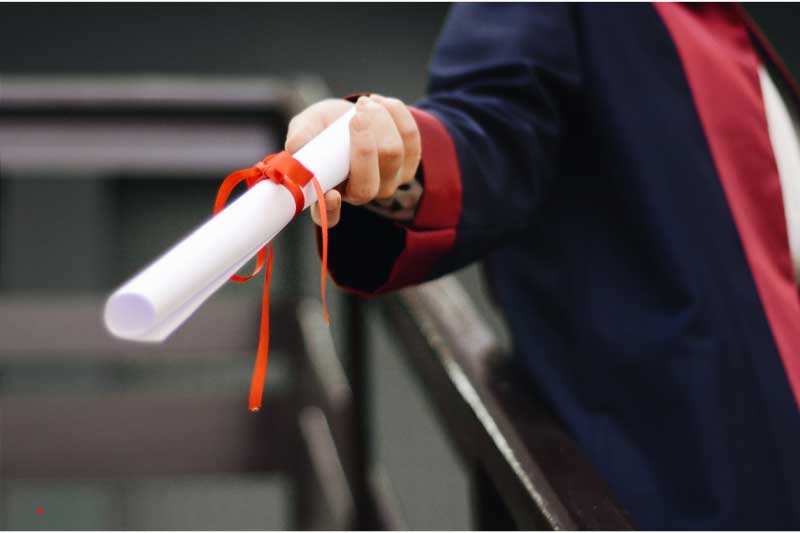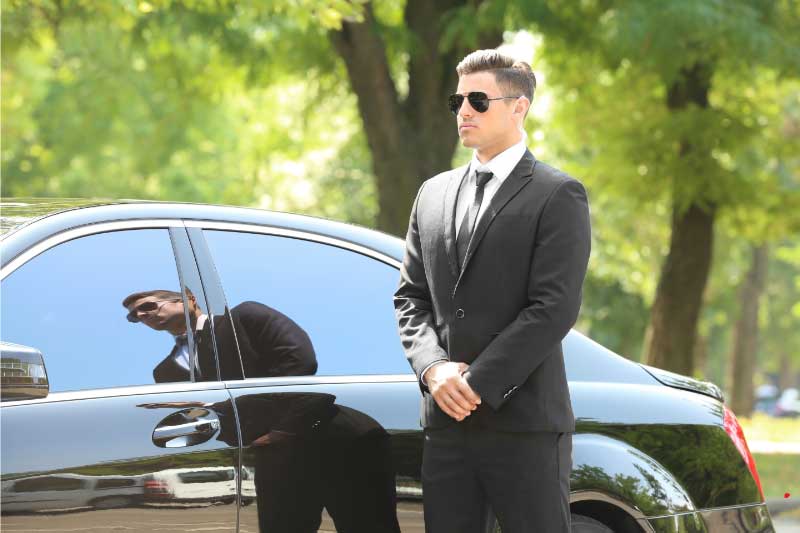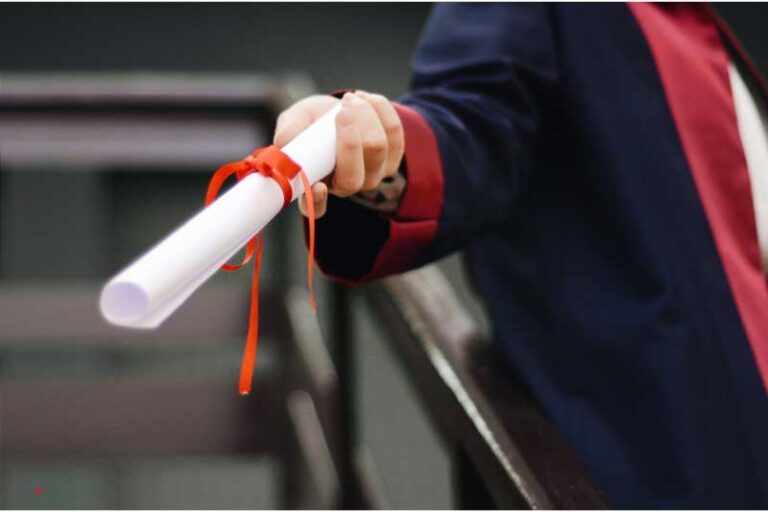When we think of private bodyguards, images of burly men in dark suits and sunglasses often come to mind, guarding celebrities and high-profile individuals. However, the realm of private bodyguards extends far beyond these stereotypes.
What Does a Private Bodyguards Do?
This blog post aims to uncover private bodyguards’ multifaceted roles and responsibilities and highlight their vital contributions to personal security. By the end of this article, you’ll understand what private bodyguards do, why they are essential, and how they operate in various scenarios.
The Diverse Roles of Private Bodyguards
Personal Protection Specialists
At the core of their profession, private bodyguards are personal protection specialists. Their primary objective is to ensure the safety and well-being of their clients. This involves constant vigilance and risk assessment. Bodyguards are trained to recognize potential threats and act swiftly to neutralize them. Whether it’s safeguarding a high-profile executive, business or a celebrity, their presence provides peace of mind.
Personal protection specialists are not just physical barriers; they are strategic thinkers. They plan routes, conduct background checks, and coordinate with local law enforcement to minimize risks. This proactive approach is crucial to their role, ensuring clients can go about their daily lives without fear.
Security Detail for Events
Private bodyguards play a pivotal role in event security. High-profile events, such as red-carpet premieres and corporate gatherings, attract large crowds and potential security risks. Bodyguards are responsible for creating a secure environment, controlling access points, and ensuring only authorized personnel can enter.
Event security is a meticulous job that requires thorough planning. Bodyguards conduct site surveys, identify vulnerable areas, and develop contingency plans. Their presence deters potential threats and reassures attendees that their safety is a top priority. In case of emergencies, they are trained to execute evacuation procedures efficiently.
Executive Protection
Due to their public profiles and potential vulnerabilities, executives of major corporations often require specialized security. Executive protection bodyguards provide round-the-clock security in the workplace and during travel. This includes securing office premises, monitoring suspicious activities, and ensuring safe transportation.
Executive protection goes beyond physical security. Bodyguards often collaborate with cybersecurity experts to protect sensitive information. They also conduct threat assessments to identify potential adversaries and mitigate risks. By offering comprehensive protection, executives can focus on their responsibilities without distraction.
The Daily Routine of a Private Bodyguard
Pre-Shift Preparations
A typical day for a private bodyguard begins with thorough preparations. They review the day’s schedule, assess potential risks, and plan routes. This meticulous planning is essential to ensuring seamless operations throughout the day. Bodyguards also check their equipment, including communication devices and firearms, to ensure it is in optimal condition.
Pre-shift preparations also involve gathering intelligence. Bodyguards stay updated on current events, potential threats, and client itinerary changes. This proactive approach allows them to adapt quickly to evolving situations. By staying one step ahead, they can effectively mitigate risks.
Escort and Surveillance Duties
One of a bodyguard’s most visible aspects is escorting clients to their destinations. This involves maintaining a discreet yet vigilant presence. Bodyguards are trained to blend in with the surroundings while keeping a watchful eye on potential threats. They are skilled in defensive driving techniques, ensuring safe and efficient transportation.
Surveillance is another critical component of their duties. Bodyguards monitor the environment for suspicious activities using observation and situational awareness training. They also coordinate with security teams at various locations to ensure seamless transitions. This constant vigilance is what sets professional bodyguards apart.
Threat Assessment and Response
Threat assessment is a continuous process in a bodyguard’s routine. They analyze potential risks, evaluate vulnerabilities, and develop strategies to counteract threats. This involves conducting background checks on individuals who may have access to the client and identifying potential physical threats in the environment.
In the event of a threat, bodyguards are trained to respond swiftly and decisively. Their response may include escorting the client to a secure location, engaging with the threat, or coordinating with law enforcement. This ability to remain calm under pressure and make split-second decisions is a hallmark of a professional bodyguard.
Specialized Training and Skills
Physical Fitness and Self-Defense
Physical fitness is a fundamental requirement for private bodyguards. They undergo rigorous training to maintain peak physical condition, including strength training, endurance exercises, and martial arts. Self-defense skills are crucial, enabling bodyguards to protect themselves and their clients in confrontational situations.
Training also extends to situational drills. Bodyguards practice scenarios involving multiple attackers, armed threats, and crowd control. This prepares them for real-world challenges and ensures they can effectively handle diverse situations. Their physical prowess is complemented by mental resilience, allowing them to stay focused under stress.
Firearms and Tactical Training
Proficiency in firearms is a critical skill for bodyguards. They undergo extensive training in handguns, rifles, and other weapons, including marksmanship, tactical shooting, and firearms safety. Bodyguards must be prepared to use lethal force if necessary, always adhering to legal and ethical guidelines.
Tactical training goes beyond firearms. Bodyguards learn techniques for building entry, room clearing, and hostage rescue. This comprehensive training ensures they can respond effectively to high-risk situations. By mastering tactical skills, bodyguards provide their clients a robust security layer.
Advanced Driving Techniques
Defensive driving is essential for bodyguards, especially those tasked with transporting clients. They undergo training in evasive driving, high-speed maneuvers, and anti-ambush techniques. This enables them to evade potential threats and ensure safe passage through hostile environments.
Advanced driving techniques are not just about speed; they focus on precision and control. Bodyguards learn how to handle various vehicles, from sedans to armored cars. This versatility ensures they can adapt to different transportation needs. By mastering these skills, bodyguards enhance their ability to protect clients on the move.
The Importance of Discretion and Confidentiality
Maintaining Client Privacy
Discretion is a core principle for private bodyguards. They are privy to sensitive information about their clients’ lives, routines, and vulnerabilities. Maintaining confidentiality is paramount to building trust and ensuring effective protection. Bodyguards adhere to strict protocols to safeguard client privacy.
This commitment to discretion extends to social interactions. Bodyguards are trained to blend in, avoiding unnecessary attention. They understand the importance of maintaining a low profile, ensuring their presence does not disrupt the client’s daily life. By respecting privacy, bodyguards create a secure environment.
Handling Sensitive Information
In addition to physical protection, bodyguards often handle sensitive information, including travel itineraries, contact details, and security protocols. Bodyguards are trained to manage this information securely, using encryption and secure communication channels. They also conduct regular audits to ensure compliance with security standards.
Handling sensitive information also involves collaboration with other security professionals. Bodyguards work closely with cybersecurity experts, law enforcement, and intelligence agencies. This integrated approach enhances overall security, ensuring that all aspects of client protection are covered.
Building Trust with Clients
Trust is the foundation of the bodyguard-client relationship. Bodyguards build trust through consistent performance, reliability, and integrity. They communicate openly with clients, providing updates on security measures and potential risks. This transparency fosters confidence and reassurance.
Building trust also involves empathy and understanding. Bodyguards recognize their clients may experience stress and anxiety due to security concerns. They create a sense of comfort and safety by offering support and reassurance. This holistic approach to protection enhances the overall client experience.
Conclusion
The world of private bodyguards is complex and multifaceted, encompassing many skills and responsibilities. Bodyguards are crucial in safeguarding individuals and assets, from personal protection to event security. Their dedication to physical fitness, tactical training, and discretion ensures they can effectively manage diverse security challenges.
As we’ve explored in this blog post, the role of a private bodyguard extends far beyond the stereotypical image. They are strategic thinkers, skilled professionals, and trusted advisors. By understanding the intricacies of their work, we can appreciate their vital contributions to personal and corporate security.
If you’re considering hiring a private bodyguard or want to learn more about their profession, we invite you to explore further resources and consult security experts. The peace of mind that comes with professional protection is invaluable, and the expertise of private bodyguards is a testament to their commitment to safety and security.
Thank you for joining us in exploring the intriguing world of private bodyguards. We hope this blog post has provided valuable insights and a deeper appreciation for the dedication and professionalism of these essential security professionals.












